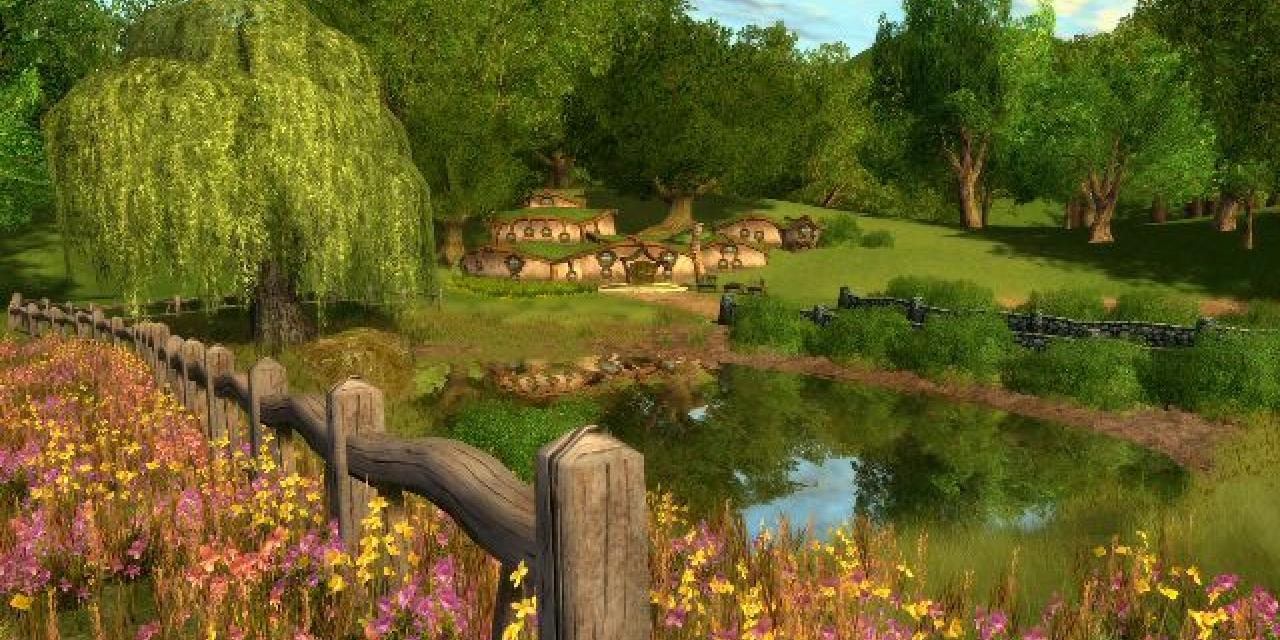
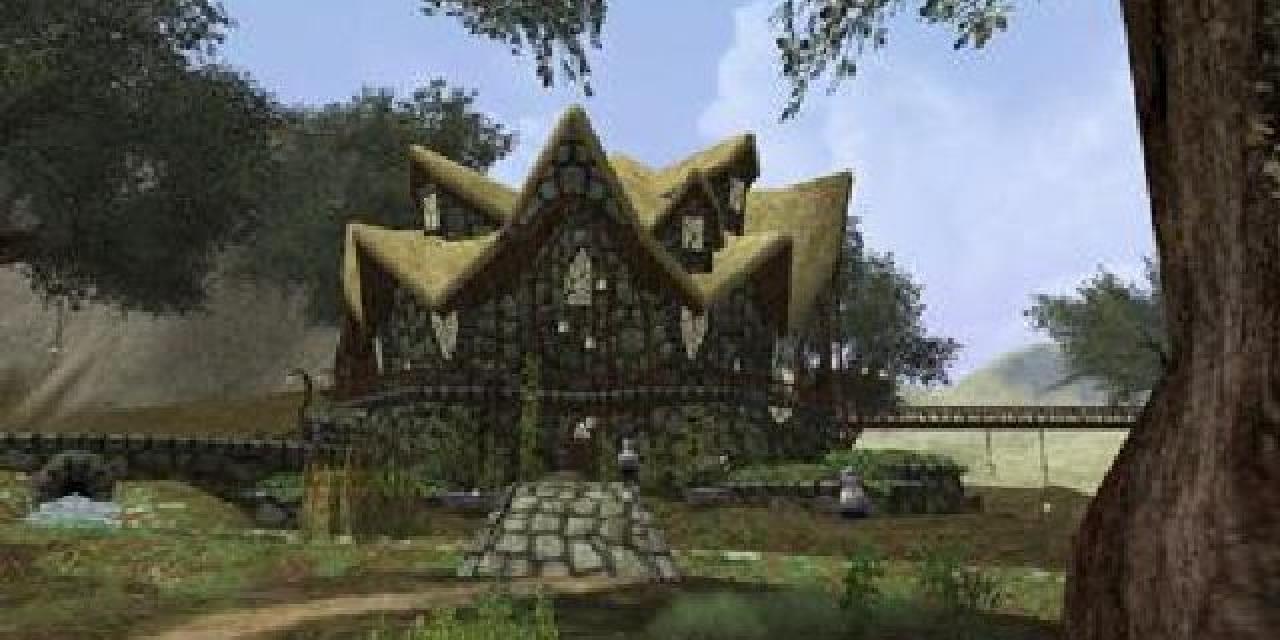
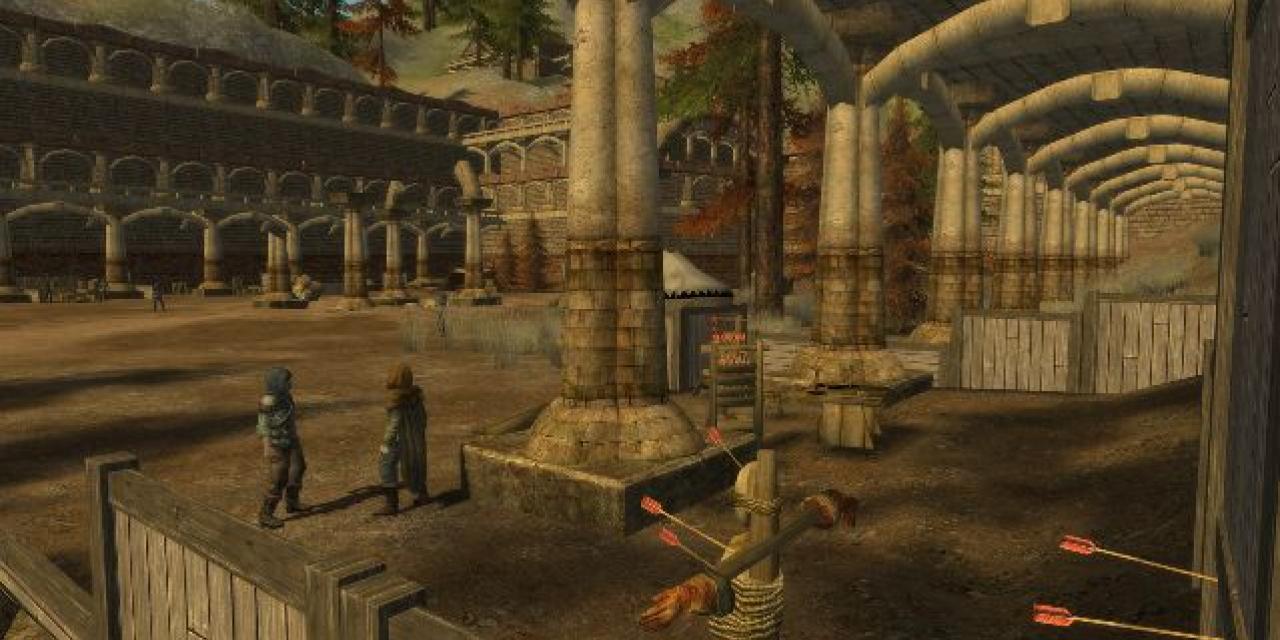
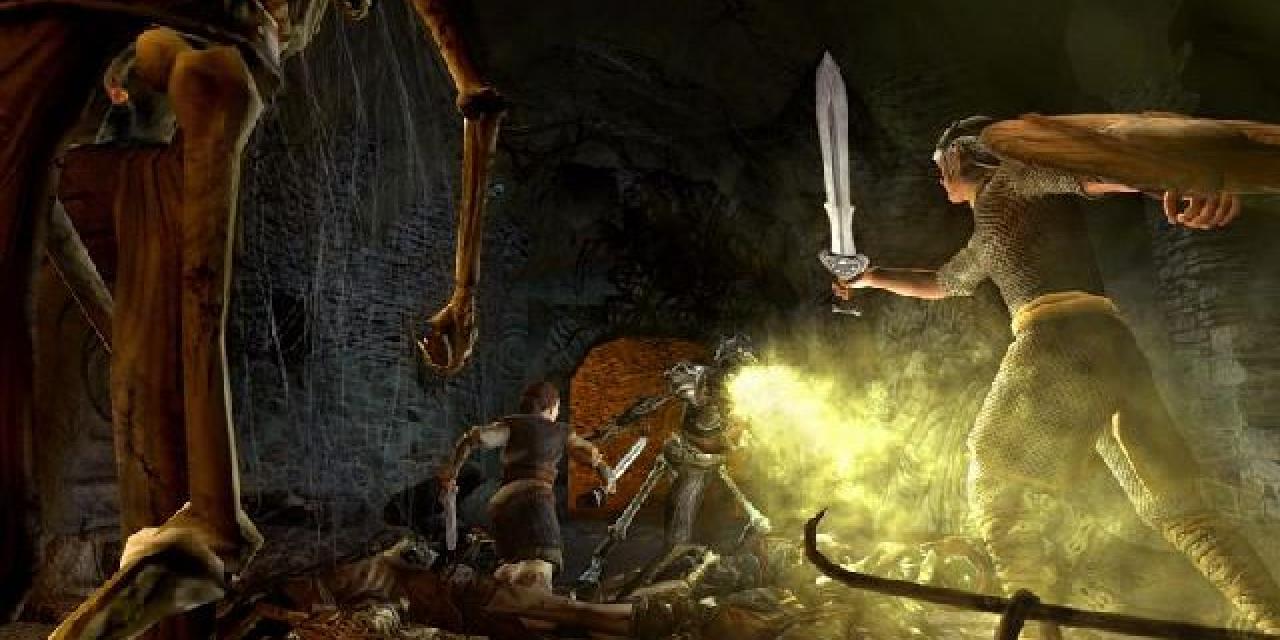
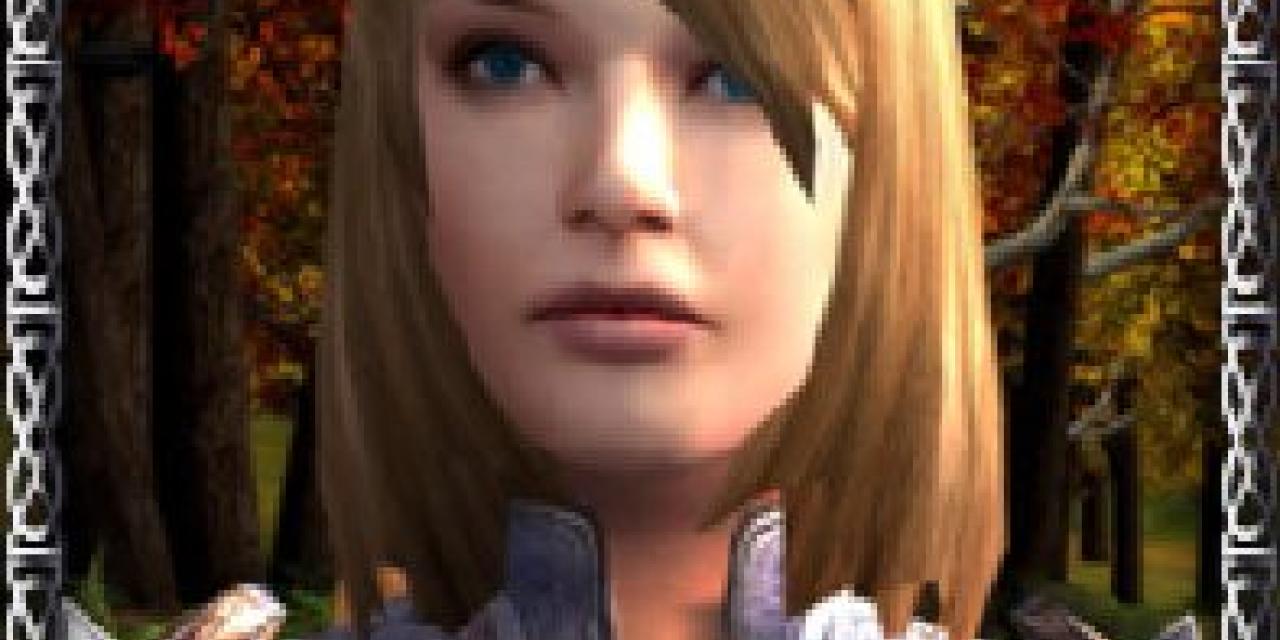
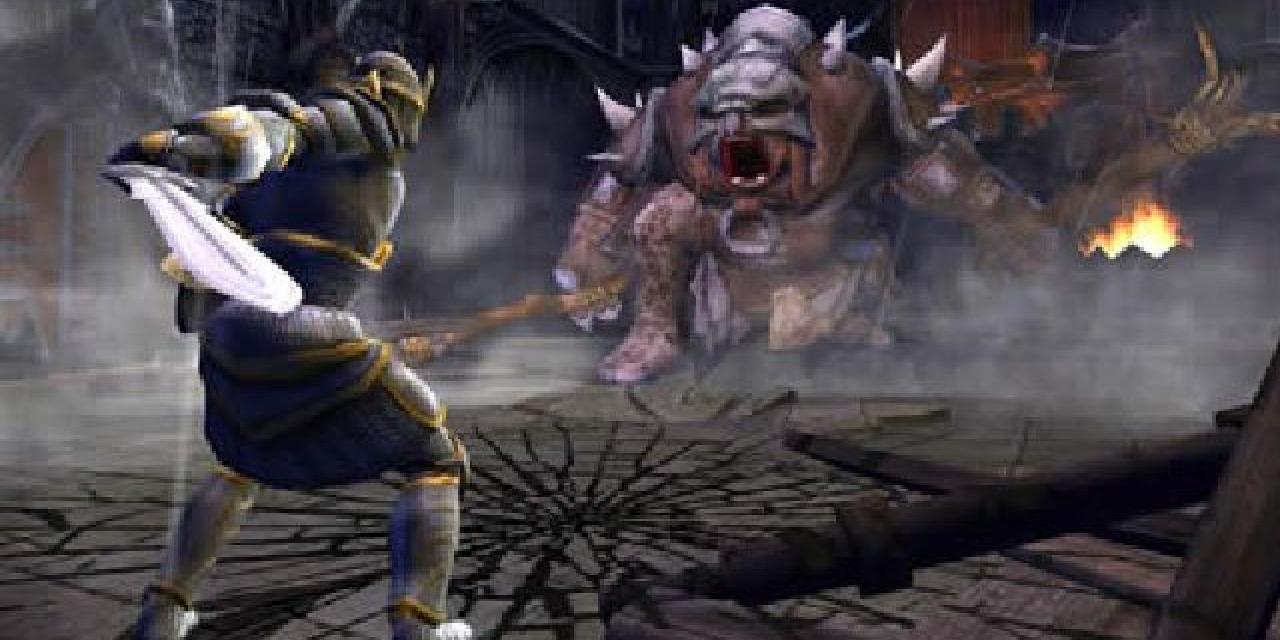
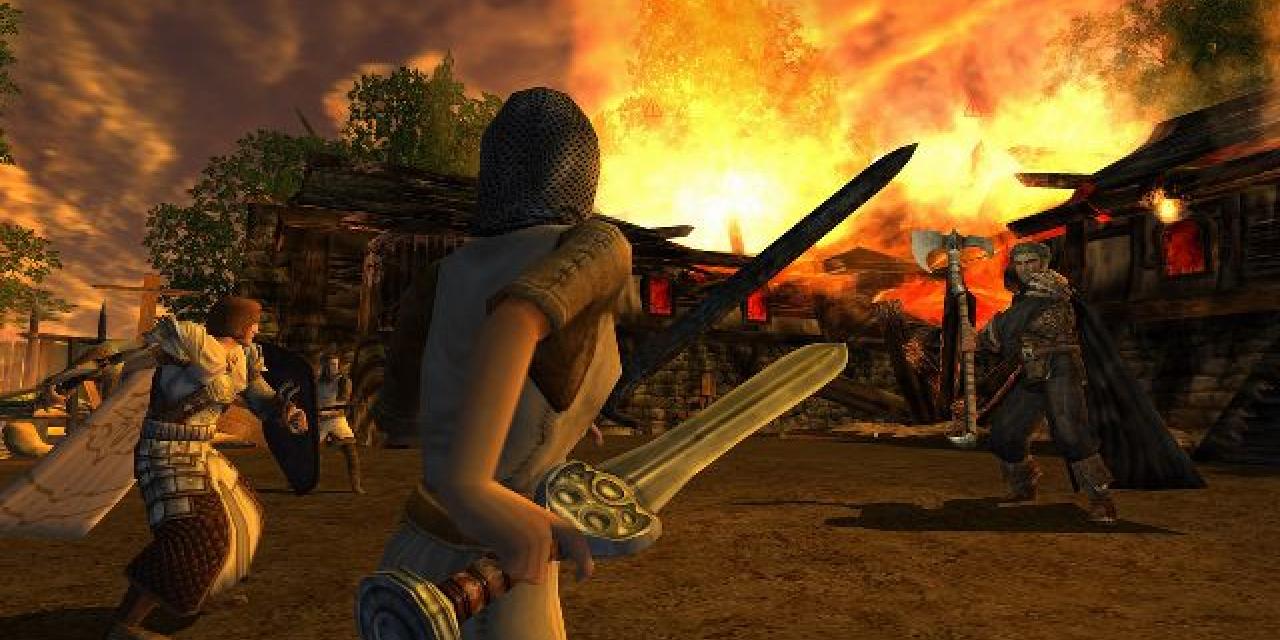
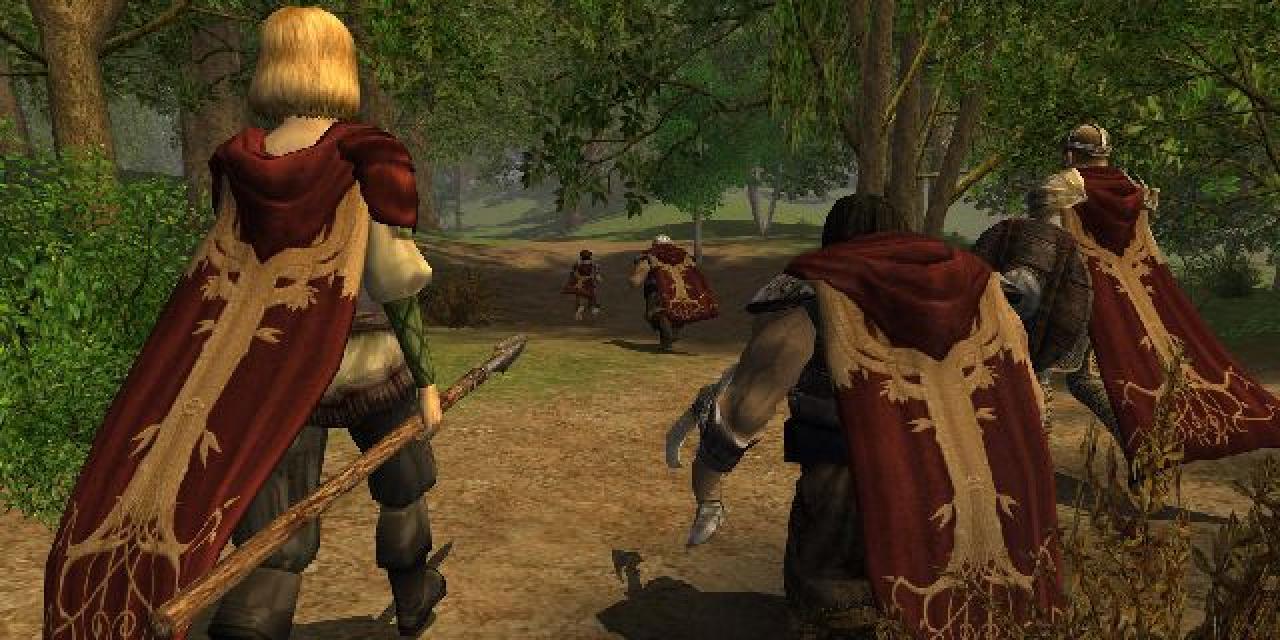
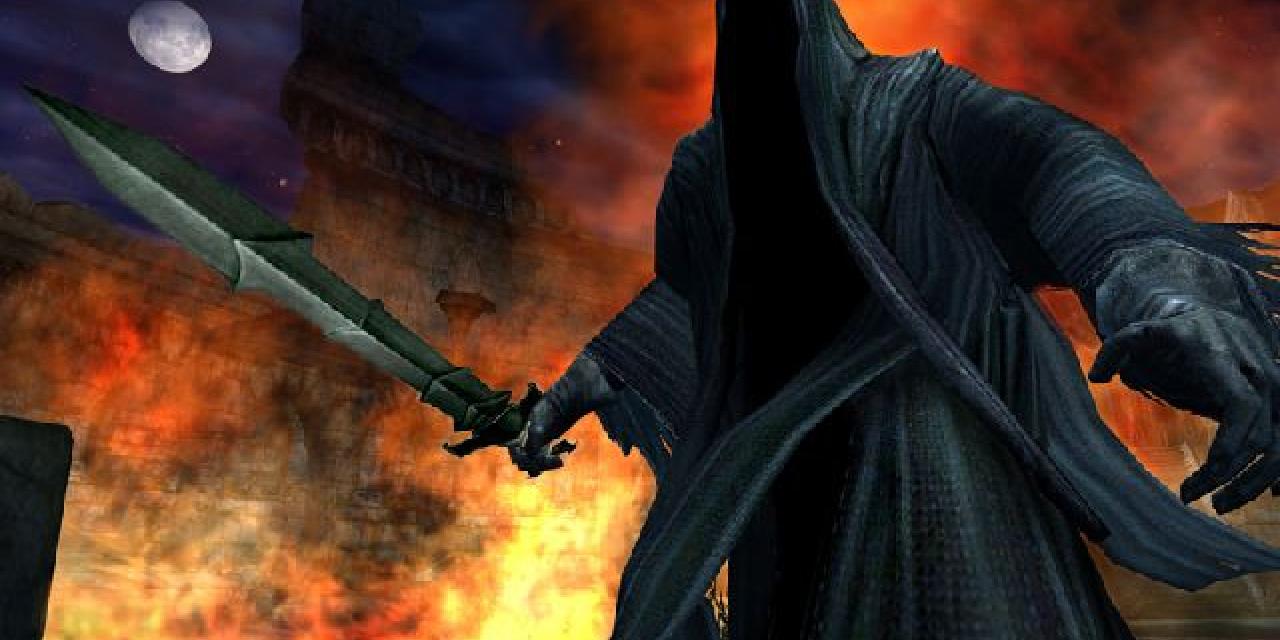
In the realm of MMOs, there's no doubt that World of Warcraft is at the top of the pecking order. Each new MMO released, is inevitably compared to Blizzard's raging giant and invariably, found wanting. Now comes a new challenger however, with the benefit of immense brand recognition on its side; Lord of the Rings Online: Shadows of Angmar.
Tolkien fans have been waiting a long time for game developers to fulfill their ultimate role playing fantasy. Things looked bleak back in1999 when Middle Earth Online was given the axe. But the developers at Turbine have been grinding away for years to push out an MMO masterpiece not just worthy of WoW competition-but worthy of Tolkien's legacy. Much to the dismay of fans, some early setbacks and a concern over a lack of content pushed the release date back from 2005 to 2007. Luckily, an open Beta this April has finally allowed fans to take their first precious glimpses at what many are hoping will be the next big thing in MMOs.
The legacy of such a high-profile license can prove both a blessing and a curse for the developer. On the one hand, it gives Turbine an edge over WoW and all other MMOs in terms of setting and a pre-existing fan base. On the other hand, working in the confines of Tolkien's world hamstrings creative development. Example: according to the books, there are only five wizards in all of Middle Earth. Ergo, there is no wizard class in Shadows of Angmar. This alone could distinguish Lord of the Rings Online from all other MMOs; it's forced Turbine to come up with new gameplay mechanics and different ways of doing the same things that WoW, Guild Wars, and Ultima Online have been doing for years.
Interesting quirks; a fresh approach to PvP, and an ever-evolving environment are but a few of the promising things emerging from Shadows of Angmar throughout the Beta test phase. There are also some clouds on the horizon too-but the central question remains: will the benefits of the creation of the game outweigh the problems? It's a black-and-white kind of world in Middle Earth, and even if you're not the biggest Tolkien buff, Lord of the Rings Online will suck you into the fantasy right from the load screen.
Lord of the Rings Online uses the same graphics engine as Ahseron's Call 2, which was revamped for the release of Dungeons and Dragons Online. D&D gamers will also note the recycled sound effects in Middle Earth when attacking any mob or opening doors. The character models for Shadows of Angmar are also the same as the ones for SC2 and D&DO, which leads to a lot of semi-identical characters with the same clothing running around for the first 20 levels. And despite an obvious amount of effort spent on the maps and loading screen displays, the UI really does look and work just like any other MMO interface.
Gamers will be pleased to see, instead, that the world of Middle Earth itself looks stunning, even if the recycled character models still don't this second time around. The reason for this is the Turbine Engine which is played up as the godsend which takes the labor of world creation out of the hands of programmers and into the hands of artists and designers. The engine generates world environments on a large scale, cutting back on the amount of time a programmer needs to spend adding content and mapping geography. Ideally, designers and artists would use this extra time to jump in and optimize character models and settings-but as we've already said, Shadows of Angmar got pushed by 3 years mostly due to the need for more content (hey, Middle Earth is a big place) and the bloody character models are cookie cutters of AC2 and D&DO.
Lord of the Rings Online stays true to Tolkien's descriptions; this however, is more likely to be the result of Tolkien nerd programmers as opposed to extra work on the part of artists and designers-but as long as the end result looks as good as it does in Beta, who cares?
The real appeal here is the instancing technology which creates an evolving world for gamers. In D&D Online, players each got identical dungeon instances and as with all MMOs, not much really changed in the world no matter how much grinding or questing was done. In Lord of the Rings Online, however, everything from simple fetch quests to hit-and-run raids on NPC brigands has an effect on the environment. Taking one action leads you to an NPC who warns you about a plot to take over a city. A fetch quest shows you the weakness in that city's defense. Later, you get back from the quest and the city's been sacked and burned. And it stays sacked and burned from that point on-the environment has changed permanently (you can go back and replay the time period before the major event happened in most cases, though, with the use of a scrying pool). Before Middle Earth Online got sacked, similar revolutionary gameplay mechanics had been spoken of (such as permanent character death). And while killing off an NPC and burning down a city aren't nearly as edgy as killing off a character that you paid for, pored over, and tweaked out-this is still a big step for MMOs.
Sadly, Shadows of Angmar does nothing new with A.I., as far as we've seen. You quest; you encounter a monster, you hack-and-slash and sometimes the thing runs away if its HP drops below ¼. Boss A.I. is a little more robust, but detractors will definitely point to this lack of imagination when it comes to critiquing Lord of the Rings Online. We had a few temporary freezes during gameplay, but no queuing for servers, and no major crashing. The hardware for the game is par for the course. System requirements call for Windows XP (Vista is listed as preferred), but a word to Vista users: most hardware lacks a decent driver for 64 bit, so check the hardware's website before you install Lord of the Rings Online, or else revert to 32 bit for the time being. Otherwise, even with 56k dial-up, you should be good to go provided you've got the memory space, DirectX 9.0c sound, and 7 GB to spare in disk space.
Lord of the Rings Online will define itself as an MMO through gameplay innovations more than name recognition. True, the Tolkien license is a heavy burden for game developers to bear (what do you mean no female dwarves?), but Turbine has made the most of the situation, introducing several new ways of playing the same type of game. And yet, it could all just be a game of semantics, as a lot of what's "new" suddenly starts to feel old while playing.
We'll start with the fact that characters are not "killed" in battles; instead, their morale runs out and they become defeated. A defeated character cannot fight and is transported back to a safe place (usually the nearest town you've visited). Defeated characters can only be "healed" during battle by a class that features moral buffs. This is not exactly as dire as permanent death, but you do suffer some stat debuffing and a temporary vulnerability to your reduced morale (just like most death penalties in most MMOs). On the bright side, your body goes with you, so there's none of that wonky spirit travel stuff.
The races in Shadows of Angmar are limited to the "Free Peoples" of Middle Earth (Men, Elves, Dwarves, and Hobbits), but the classes are meant to shake things up a bit. Without wizards to work with, players can instead be "lore masters" (like Elrond, for those of you familiar with the books). Lore masters use their extensive knowledge of the world to manipulate combat, buff stats, and call "pets" into battle for crowd control purposes. So basically, they're mages, but with a Tolkien-appropriate name. It appears that the lore master is meant to be the primary healing class, but it's worth mentioning that the minstrel class can do basically the same thing with the right kind of tweaking (and you'll notice the Shadows of Angmar minstrel class is not that much different than the EverQuest II minstrel class).
The traits system, sort of, provides a unique way for players to individualize their characters-though some people may gripe that this resembles WoW's skill system. As you go along doing story quests, fetch quests, and simple tasks, the traits quests become available to you. Completing a trait quest sometimes awards you with access to new traits (depending on your level you can only have so many). Past a certain point, you will have more traits available to you than you have slots for them-so choose wisely. Traits are divided into race traits, class traits, and virtue traits-providing a variety of combinations depending on your character choices.
Crafting in Lord of the Rings Online is indeed unique to other MMOs. In Middle Earth, each character can choose a profession (not like the Guild Wars professions, which is basically a class system) that gives the player three subsets of skills (crafting, gathering, etc.). Anybody can craft items, but depending on your profession, you can't just craft anything. A weaponsmith can dole out blades, but if you want to craft a bow, you'd need the help (or paid service) of a woodworker to get the right kind of lumber. Even players who aren't into crafting their own items can benefit from this system: NPCs might task you with gathering stuff for them to craft something out of, which awards you XP.
It's unlikely that players can just sit back in the Shire and shell out materials, however. As far as we've seen in Beta, finding materials isn't always easy and buying them would require a healthy stock of gold. Either way, crafting becomes an active profession worth having as you can make some pretty sweet items even at low levels that will continue to be useful as you level up. You can also change your profession by visiting an NPC, so don't be afraid to shop around for a worthy calling.
There has been a lot of buzz about PvP in Middle Earth. Naturally, fans of the books would want a chance to cut down Goblins and Uruk-hai; however, PvP MMO fans will expect the ability to brawl plain and simple. But it doesn't make sense in Tolkien's mythos for Men to be fighting Men or Elves to be fighting Dwarves-so combat is strictly between the "Free People" and the evil races. How can you do that, a player would ask, if you can't play as an evil character? The answer is…weird. After level 10, you can take your character to a town that has a Fell scrying pool and gaze into its red-and-black depths. This brings up a new menu where you can choose a character out of 3 available evil races. This secondary character grants you access to the Ettenmoors (aka "battlegrounds"). In this setting, as either an evil character or a good one, you fight to control areas on the map. PvP gamplay in the Ettenmoors feels like a series of long raids-you go to a point held by the rival faction (without knowing whether the characters are other players or only NPCs) and you fight to take down the boss and hold the position. Combat is much more complex than simple run-and-stab PvP and requires a heavy amount of planning depending on how many people you can get to form a raid.
The PvP payoffs seem worth it, though: you get "destiny points" which you can spend on upgrading your PvP character, or spend them on buffs for your normal character. This is an example of Turbine stretching to mesh together MMO standards and Tolkien lore: does it really make sense to fight as an Orc, killing Elven generals, so that you can go back and buff up your Hobbit? Time will tell on this one, but this PvP is a bit of a switch from conventional WoW mechanics.
This particular LoTR effort had a major, inherent obstacle to overcome; creating a Tolkien-faithful MMO game that also worked for other MMO fans. The obvious danger is that you can end up alienating both LoTR fans and MMO gamers and in many ways that threat is still visible for Turbine. The idea of having thousands of online players, all joining Frodo on a fun quest couldn't have been on the table for more than a couple of seconds, so sacrifices had to be made. The plot, which sees Sauron sending the Witch-King, leader of the Ringwraiths, back to their ancient kingdom, could immediately lose the developers the LoTR purists; we have to add however, that the quests during which the game and Fellowship timelines cross are ingenious and fairly well executed. Hardcore Tolkien fans will still shake their heads when they see Elves and Dwarves in out of place settings while MMO gamers will gasp as they have to familiarize themselves with LoTR character class terminology. Shadows of Angmar will be a true test of Tolkien's world and whether it can still captivate the imagination in the same way it did through the books and movies.
Ultimately, what will make or break your Shadows of Angmar experience is how much you love Lord of the Rings. Turbine has made the game simple enough to attract new MMO gamers that are simply out to suck up as much of Middle Earth as they can get their hands on (time will tell if that adds up to 8 million). These fans will deeply appreciate the creative effort put into tying all the quests to the War of the Ring, will enjoy the well-written and in-character dialog of the NPCs, and will definitely get their money's worth when paying USD 199 for the Lifetime subscription. And they probably won't notices the similarities between D&DO, AC2, or WoW. But, if you were never a big fan of the books or the movies or didn't know that Tolkien is the granddaddy of Orc lore (NOT Blizzard), you might find yourself complaining about how Lord of the Rings Online is just another pretender to WoW's throne.
Pros
--Getting a chance to play in Middle Earth
--Unique approach to old MMO PvP conventions
--True to Tolkien's books
--An evolving world where what you do actually matters
--Varied profession systems to make up for a lack of race options
--Fast travel and mounts make it easy to get around
--Promise of forthcoming content
Cons
--No one can be Gandalf
--Recycled graphics and sounds from Dungeons & Dragons Online and Asheron's Call 2
--Ugly and/or plain character and item models
--Limited PvP system may get old really fast
--It might get weird if you become more powerful than Aragorn
--Not incredibly different from any other MMO
